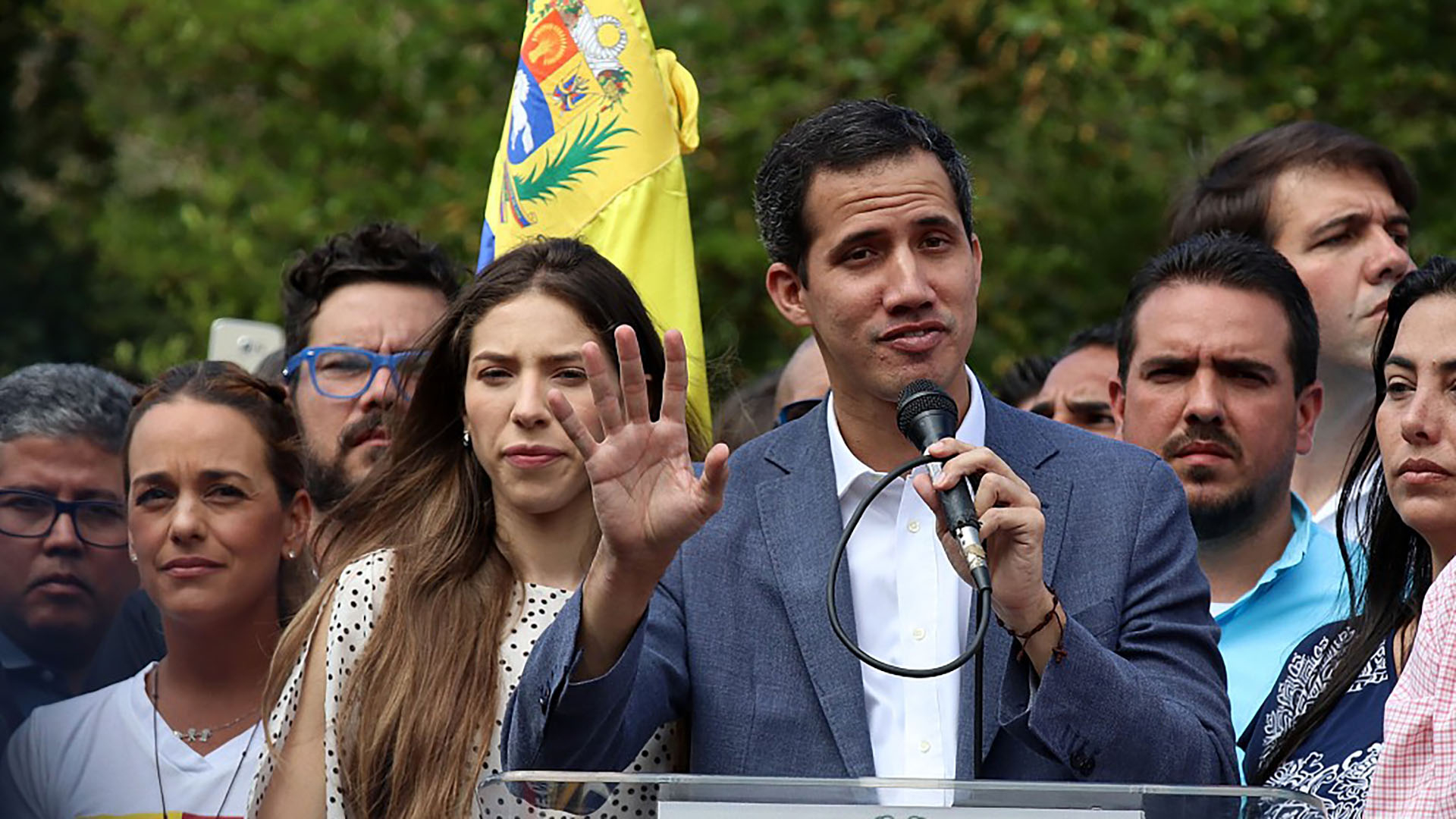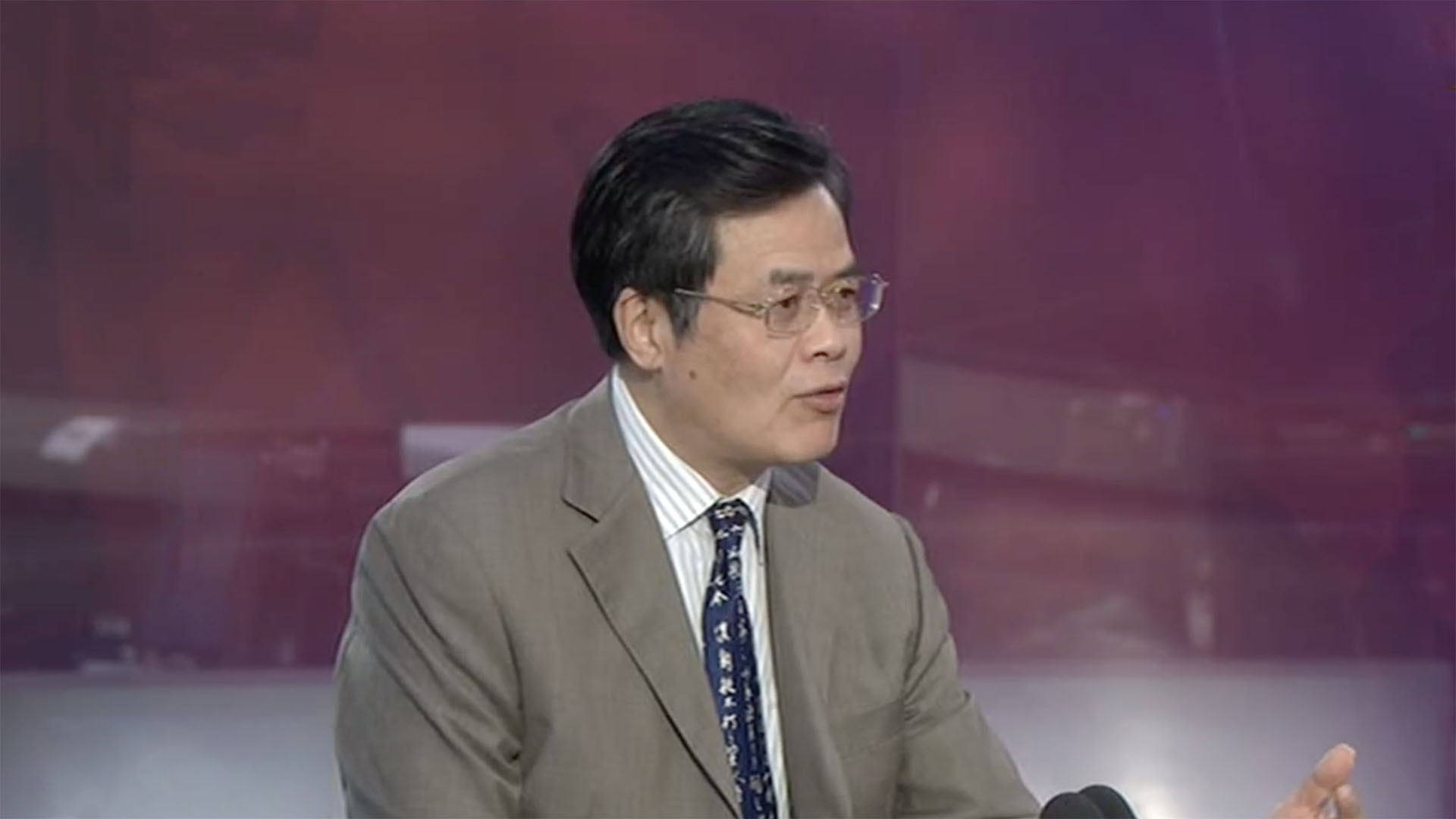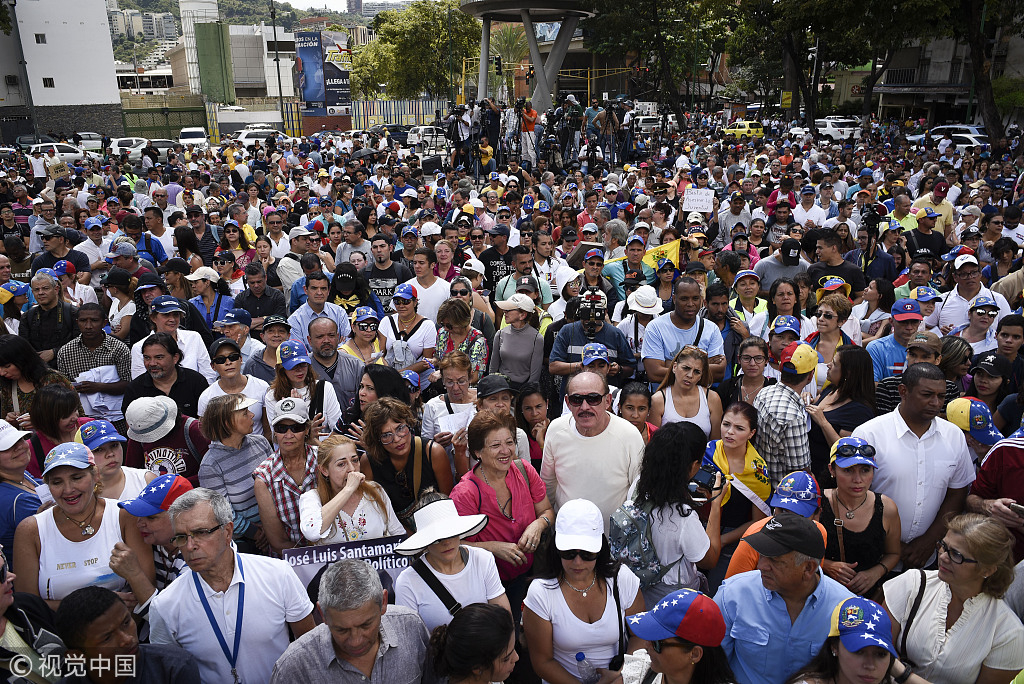
TV Show
22:53, 27-Jan-2019
U.S. intervention in Venezuela's political chaos
Global Watch
01:28

The UN Security Council held an emergency meeting on Venezuela's political crisis on Saturday, pitting backers of President Nicolas Maduro against supporters of self-declared president Juan Guaido.
Venezuela's Foreign Minister Jorge Arreaza said the Trump administration is "in the vanguard of a coup d'etat." Arreaza also jabbed at the leaders of various European nations, asking: "Where did you get the power to tell a sovereign country what to do or give ultimatums?"
Maduro broke diplomatic relations with the U.S. on Wednesday after the Trump administration recognized opposition leader Guaido as Venezuela's interim president.
Russia backed its ally Maduro. The two countries have military and economic ties. Russia sent two military planes to Venezuela last month and sanctioned billions of dollars in loans to the Maduro government.
01:22

Russia has described events in Venezuela as "increasingly alarming," and said the situation is being "artificially heated up" from the outside. The Russian Foreign Ministry has criticized the U.S., in particular, for its recognition of opposition leader Guaido as the interim president, describing it as "cynical, overt interference." It has accused the U.S. of stoking street protests and said any outside military intervention could have "catastrophic consequences."
On Saturday at the UN, Russian ambassador Vassily Nebenzia accused the U.S. of attempting to "engineer a coup d'etat" and demanded the U.S. to reveal if it would use military force in the country. He also told the UN Security Council that Venezuela does not pose a security threat to international peace.
At the UNSC meeting, China appealed for calm and restrained attitude, as China has always followed the principle of non-interference in other countries' internal affairs, and opposed foreign interference in Venezuela's affairs.

People gather to hear a speech by Juan Guaido, the self-declared leader of Venezuela, at the Las Mercedes neighborhood of Caracas, Venezuela, January 29, 2019. /VCG Photo
People gather to hear a speech by Juan Guaido, the self-declared leader of Venezuela, at the Las Mercedes neighborhood of Caracas, Venezuela, January 29, 2019. /VCG Photo
Jiang Shixue, an expert of Latin American studies from Shanghai University, shared his views on the current chaos in Venezuela. He backed China's firm non-interference stance, saying that the actions of the U.S. have violated the non-interference principle of the UN Charter.
During the past two decades, the U.S. has been trying every possible mean to meddle in Venezuelan domestic affairs by promoting strong anti-government sentiment, including an attempt to topple Hugo Chavez's leadership in 2003.
Venezuela is not the only U.S. target in Latin America. At the UN General Assembly in September last year, Bolivian President Evo Morales said every time the U.S. invaded nations or supported government change, it was in the garb of democracy and human rights but in reality, it was actually the opposite.
Jiang said during the past century, Latin American countries have been close to the U.S., and the U.S. has always tried to maintain its absolute dominance in the region.
If any country or a leader tried to fight against it, the U.S. would try everything to contain their actions, like the 50-year long economic sanctions on Cuba, and other military actions. Jiang believes that U.S. meddling would make the current situation in Venezuela even worse, possibly making it "Syria or Iraq" of the Latin American region.
(If you want to contribute and have specific expertise, please contact us at opinions@cgtn.com)

SITEMAP
Copyright © 2018 CGTN. Beijing ICP prepared NO.16065310-3
Copyright © 2018 CGTN. Beijing ICP prepared NO.16065310-3